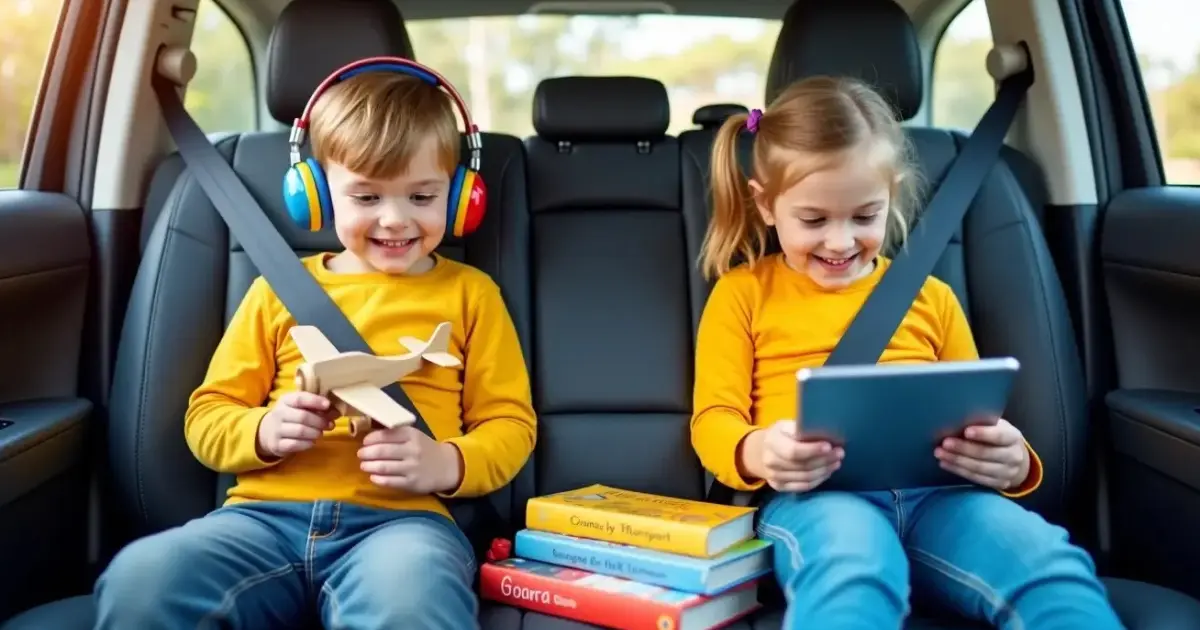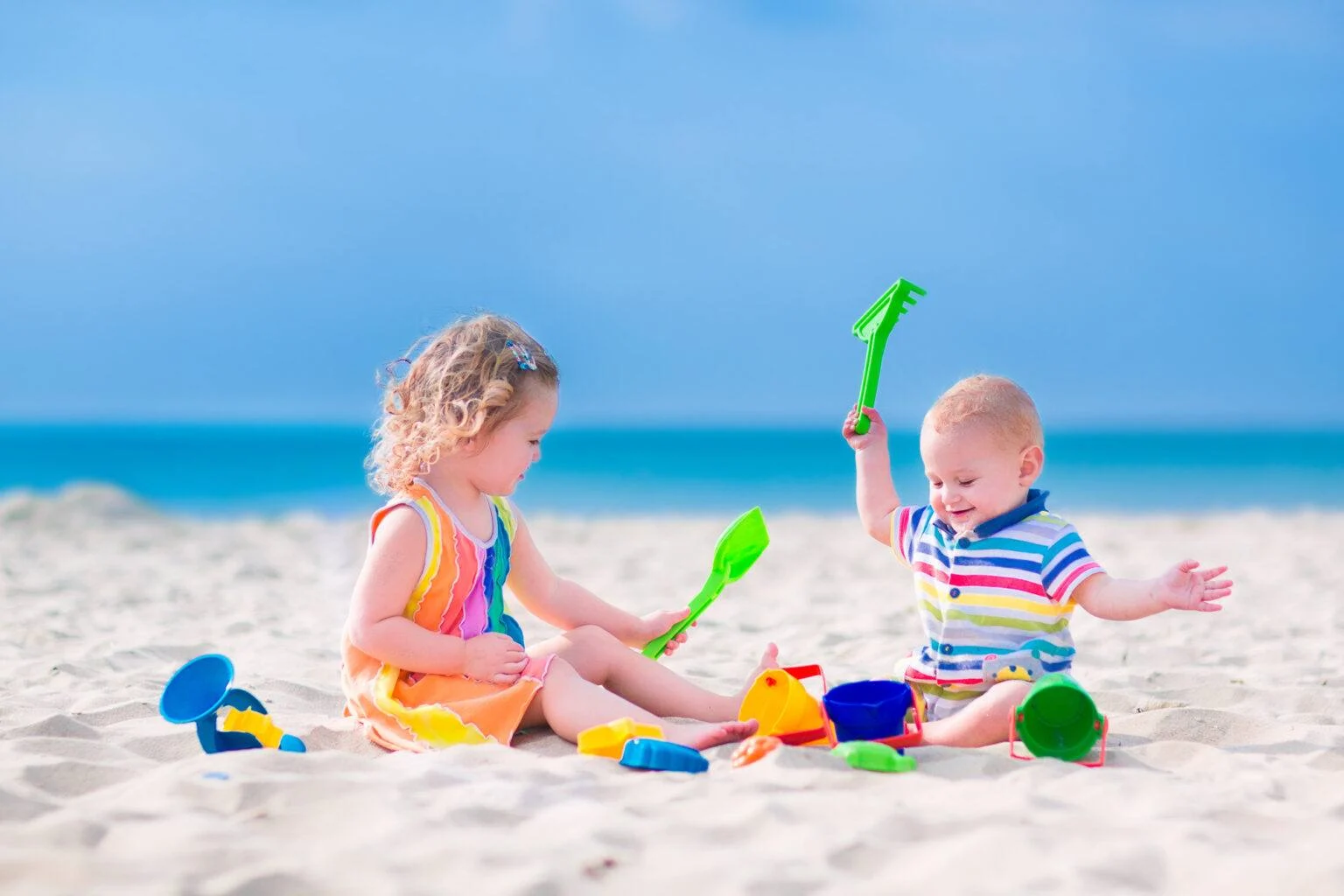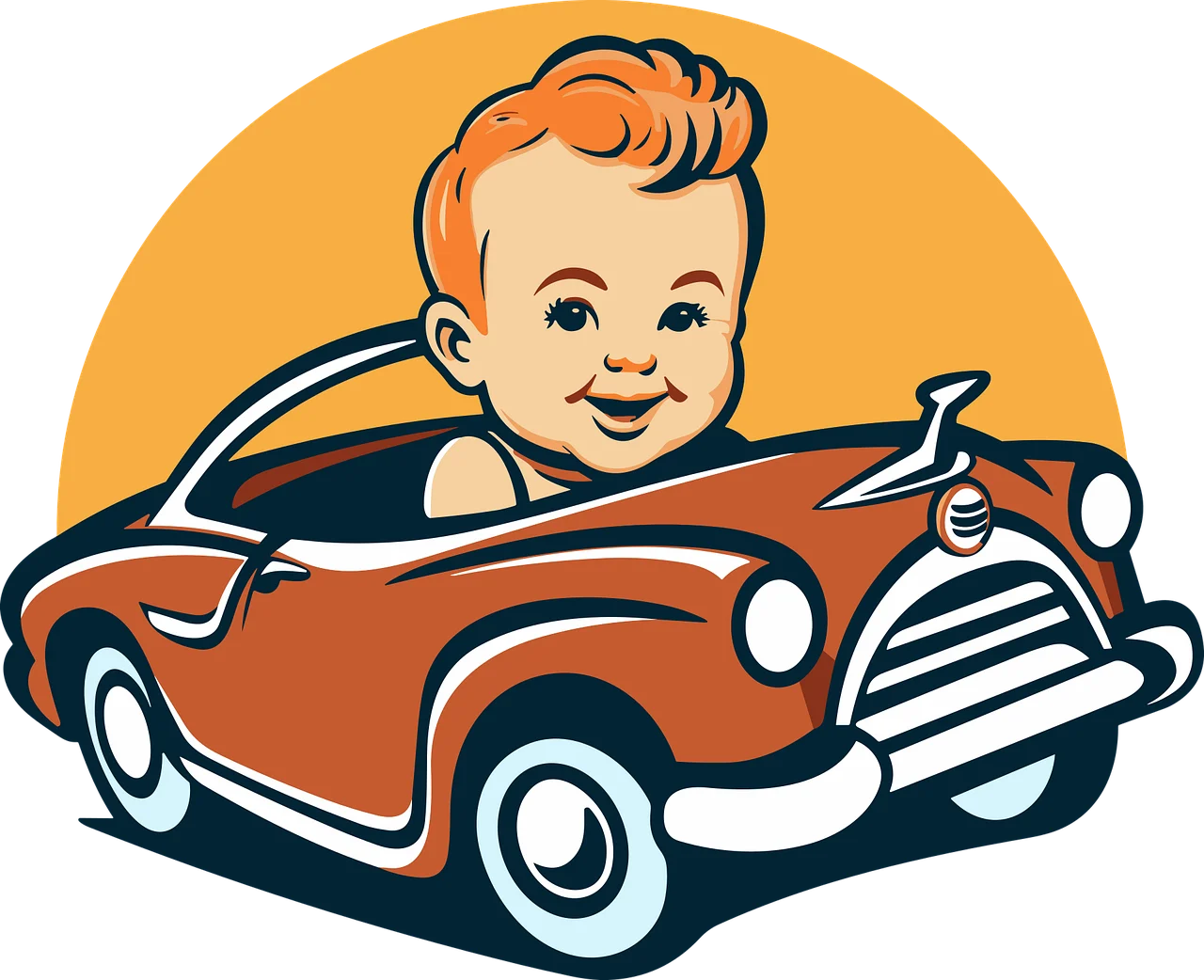Having a baby doesn’t mean you have to stay home all the time. Many new parents want to travel and show their little ones the world. But when is the right time to start? What is the best age to travel with a baby?
This guide will help you figure out when your baby might be ready for their first trip. We’ll look at the good and bad points of traveling with a newborn, traveling with a 3-month-old, traveling with a 6-month-old, and even traveling with a one-year-old.
Why Does Age Matter When Traveling With Babies?
The age of your baby can make a big difference in how your trip goes. A tiny newborn has very different needs than a crawling 9-month-old or a walking toddler.
Picking the right time to travel can make your trip much more fun for everyone. Parents who plan trips based on their baby’s age often have better experiences and less stress.
Breaking Down Travel By Baby’s Age
Traveling with a Newborn
Taking a trip with a brand-new baby might seem scary, but some parents find it’s not as complicated as they thought.
Good Points:
- Newborns sleep a lot (up to 16/17 hours each day)
- They stay where you put them, and there is no crawling away!
- They don’t have fixed schedules yet
- If you’re breastfeeding, feeding is easy; no need to pack food
- Babies this age are usually happy being carried or worn in a baby carrier
Hard Parts:
- Very young babies can get sick more easily. for tips Weather safety for kids
- You’ll need to feed them every 2/3 hours, even at night
- You might still be tired from giving birth
- Sleep patterns aren’t predictable yet
- Doctors often suggest waiting until after the first shots before traveling
From a Real Parent: We took our daughter on a 4-hour car trip when she was 6 weeks old. We stopped every hour for feeding and diaper changes. It was doable but tiring. I wouldn’t try anything more significant at this age.
Traveling with a 3-month-old
Many parents find that traveling with a 3-month-old hits a sweet spot.
Good Points:
- Sleep and feeding start to follow more of a pattern
- Babies have had their first round of shots
- They’re less likely to get sick than newborns
- Parents usually feel more confident by now
- Babies smile and interact more but don’t crawl yet
- Often, a happy time before teething starts
Hard Parts:
- Some babies get fussy around 3/4 months
- Teething might be starting, which can affect sleep and mood
- They notice more when things change
- Still needs frequent diaper changes and feedings
From a Real Parent: Four months was perfect for us. Our son had a pattern we could count on, smiled at everything, and couldn’t crawl away yet. We spent a week at the beach, and it went much better than we expected.
Traveling with a 6-month-old
Traveling with a 6-month-old is what many parents and doctors say is the ideal age.
Good Points:
- Can sit up by themselves so that they can enjoy more activities
- Usually very smiley and social at this age
- Stronger immune system with several shots done
- Longer time between feedings, especially if eating some solid foods
- Handle new places and people better
- Better head control makes baby carriers more comfortable for longer times
Hard Parts:
- Starting to move more, which means they might squirm during travel
- May show signs of stranger anxiety around 8/9 months
- Nap schedules become more important
- Adding solid foods means more to pack and plan for
From a Real Parent: Six months was the best time for travel. Our daughter was interested in everything, slept well, and was easy to keep happy. We visited three countries in Europe with very few problems.
Traveling with an Older Baby
As babies get closer to their first birthday, travel changes again.
Good Points:
- More interactive and interested in their surroundings
- Can enjoy simple activities at your destination
- May sleep better through the night
- Can eat more regular foods
- Starting to understand simple words and directions
Hard Parts:
- Increased movement (crawling or even walking) means watching them all the time
- Starting to have more substantial likes and dislikes
- Separation anxiety often gets worse during this time
- Changes in routine can be harder
- It may be too heavy to carry for long periods, but not happy sitting in a stroller
From a Real Parent: Our 10-month-old was curious about everything, which was great for enjoying our trip but tiring during travel. Airport waiting times turned into baby workout sessions!
Traveling with a 1-Year-Old
Traveling with a 1-year-old has its own set of challenges and rewards.
Good Points:
- Can show you what they want or need
- More engaged with experiences
- More independent in some ways
- Can play simple games during travel time
- Usually more flexible with food
Hard Parts:
- Walking means new safety concerns, especially during car rides.Make sure Baby Car Seat Safety
- Very curious and hard to keep in one place
- Nap changes can affect mood a lot
- May have tantrums when tired or overwhelmed
- May need their seat on planes
From a Real Parent: At 14 months, our son wanted to walk everywhere himself. Great for him, but it is challenging to catch connecting flights! But seeing his face light up at new things made it all worth it. 
What Else Affects When You Should Travel?
While age is important, other things also matter when planning a trip with your baby:
Your Baby’s Personality
Every baby is different. Some babies go with the flow and handle changes well. Others are more sensitive and need their regular routines.
Our first daughter was so easy that we flew to another country when she was 4 months old without problems, says Sophie, mom of three. “Our second baby didn’t like changes to her routine, so we waited until 10 months for our first overnight trip, and I’m glad we did.
Think about your baby:
- How do they handle changes?
- Do bright lights and loud noises bother them?
- How do they sleep in new places?
- Do they adjust quickly to new things?
Where You’re Going and How Long You’ll Be Gone
A weekend trip to grandma’s house is very different from a week-long vacation in another country.
For your first trip with baby:
- Start with shorter trips to see how your baby does
- Pick places where you can easily find a doctor if needed
- Choose places with baby-friendly hotels and facilities
- Think about whether and how it might affect your baby
How You’ll Travel
The way you travel matters a lot with babies:
Car Trips:
- You can stop whenever you need to
- More straightforward to bring all your baby’s stuff
- Someone can sit with the baby while another person drives
- Often better for younger babies who need more attention
Airplane Trips:
- Babies under two can often sit on your lap on domestic flights for free
- Pressure changes during takeoff and landing can hurt the baby’s ears
- Limited space to move around
- Security lines and procedures take more time
Train Trips:
- More room to move around than on planes
- No ear pressure problems
- Easier access to bathrooms for diaper changes
- It can be complicated with strollers and lots of baby gear.
Where You’ll Stay
Your hotel or rental can make a big difference:
- In hotels vs. vacation homes, having a kitchen helps in making baby food.
- Can they provide a crib?
- Is there a separate space for the baby to sleep?
- How close are you to the places you want to visit?
- Do they have high chairs, bathtubs, or washing machines?
How Confident You Feel
First-time parents might feel better waiting until their baby is older and they feel more sure of themselves. Parents who travel a lot before having a baby might adapt more quickly.
What Experts Say About Baby Travel
What Doctors Recommend
From a health standpoint, I suggest waiting until after the 2-month vaccines before any significant travel For more expert advice Travel Tips. The best age to travel with an infant is often between 4/7 months when they have stronger immune systems but aren’t yet crawling everywhere.
Important health things to think about:
- Vaccine timing
- How easily you can find healthcare where you’re going
- Weather and environment at your destination
- How long flights are for very young babies
What Travel Experts Suggest
Family travel expert says, The sweet spot for best time to travel with baby is usually between 4/7 months. They’re generally happy and interactive and don’t move around on their own yet. Once crawling starts around 8/9 months, everything changes, and you’ll need a different approach to travel.”
Travel pros recommend:
- Planning extra time for all connections
- Thinking about time zone changes and how they’ll affect sleep
- Starting with trips in your own country before going international
- Using baby carriers to make airports and sightseeing easier
Helpful Tips For Traveling With Babies At Different Ages
For Newborns (0-3 months)
- Keep trips short and simple.
- Bring copies of medical records.
- Stay within an hour of medical facilities if possible.
- Pack extra of everything (especially diapers and clothes)
- Use a bassinet attachment for strollers when you can
- Plan travel around feeding times.
For Early Infancy (3-6 months)
- Try to stick to sleep routines even while traveling.
- Bring familiar sleep items (sound machine, sleep sack)
- Pick places with mild weather.
- Pack baby-safe toys for entertainment.
- Plan activities in short chunks with breaks
For Middle Infancy (6-9 months)
- Choose places to stay with space for crawling.
- Bring simple baby-proofing items for hotel rooms.
- Pack familiar foods if starting solids.
- Use baby carriers for sightseeing.
- Plan for regular naps to avoid overtiredness.
For Late Infancy (9-12 months)
- Look for baby friendly activities where you’re going.
- Plan longer stays with fewer moves from place to place.
- Bring comfort objects from home.
- Choose ways to travel that let the baby move around some.
- Schedule quiet time for play.
For Toddlers (12-18 months)
- Pick places with safe areas to explore
- Pack entertainment for travel times.
- Consider resorts or cruises with childcare.
- Bring simple, familiar snacks.
- Try to find places to stay with separate sleeping areas.
Real Stories From Parents: What Worked And What Didn’t
We asked 50 families about their experiences traveling with babies.
Success Stories:
- We went to Hawaii when our daughter was 5 months old. She wasn’t crawling yet, slept well on the plane, and adjusted quickly to the time change. It was perfect timing for her first big trip.
- Our 7-month-old loved our European vacation. He was fascinated by new faces and places, and his schedule was regular enough that we could plan our days.
- At 3 months, our son was perfect for our family road trip. He slept most of the car ride and was happy to be held by relatives.
Lessons Learned:
- We traveled when our daughter was 10 months old and crawling everywhere. Our relaxing beach vacation turned into constant baby-watching. Looking back, we should have gone earlier before she could move around or waited until she was walking better.” – Devon, parent of one.
- “A sleep regression hit during our ‘dream vacation’ with our 9-month-old. We should have postponed or chosen a place with separate sleeping areas.
- We didn’t realize how much stuff a 4-month-old needs. Next time, we’ll look into renting baby equipment at our destination instead of bringing everything.
The Best Age For Baby Travel: Is There A Perfect Time?
While every baby is different, most parents and experts say the “sweet spot” for first-time baby travel is between 4/7 months. During this time, most babies have:
- Had several rounds of vaccines
- Developed more regular sleep patterns
- Not started crawling yet
- Grown past the fragile newborn stage
- Not yet developed intense separation anxiety
But you can travel at any age with the proper planning and realistic expectations. Many parents find that the best age to travel with a baby is whatever age your baby happens to be when you’re ready for adventure as long as you plan for that stage of development.
Is Your Baby Ready For Travel? A Quick Checklist
Before booking your trip, ask yourself:
- Has your baby had their age-appropriate vaccines?
- Has your baby been healthy for the past few weeks?
- Do you know your baby’s daily patterns?
- Is your destination suitable for your baby’s needs?
- Have you talked with your baby’s doctor about any travel concerns?
- Are you mentally ready for the challenges of traveling with a baby?
If you answered yes to most of these questions, you’re ready for your first family adventure!
Conclusion
There’s no single best age to travel with a baby. It all depends on their needs at each stage. The challenges of traveling with a little one are temporary, but the memories last a lifetime. With some planning, flexibility, and the right mindset, you can make traveling with your baby an enjoyable and enriching experience. Start small, choose destinations that suit your baby’s routine, and embrace the adventure. The world is a whole of new sights and experiences waiting to be discovered together!






